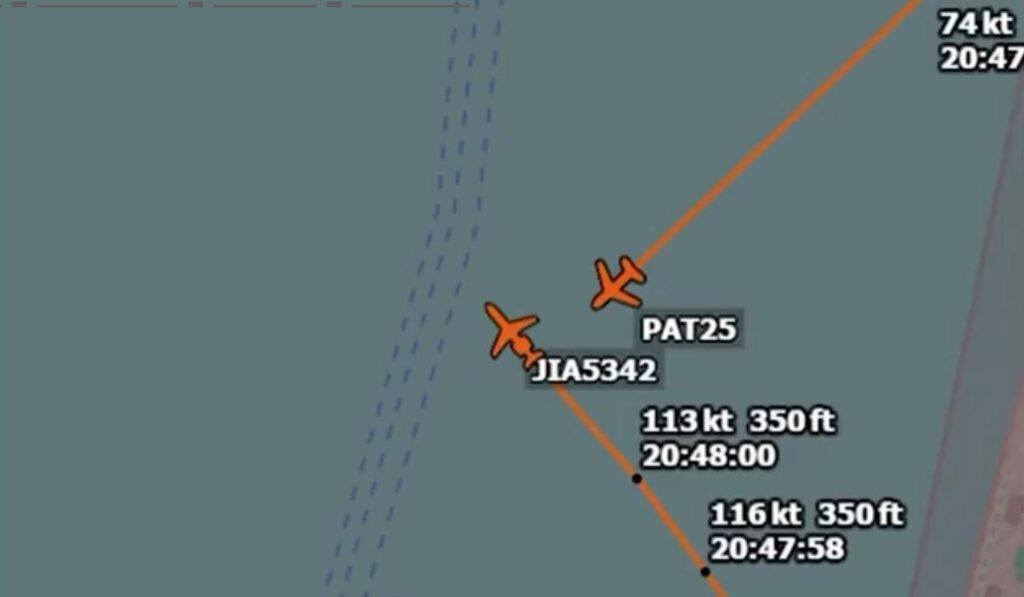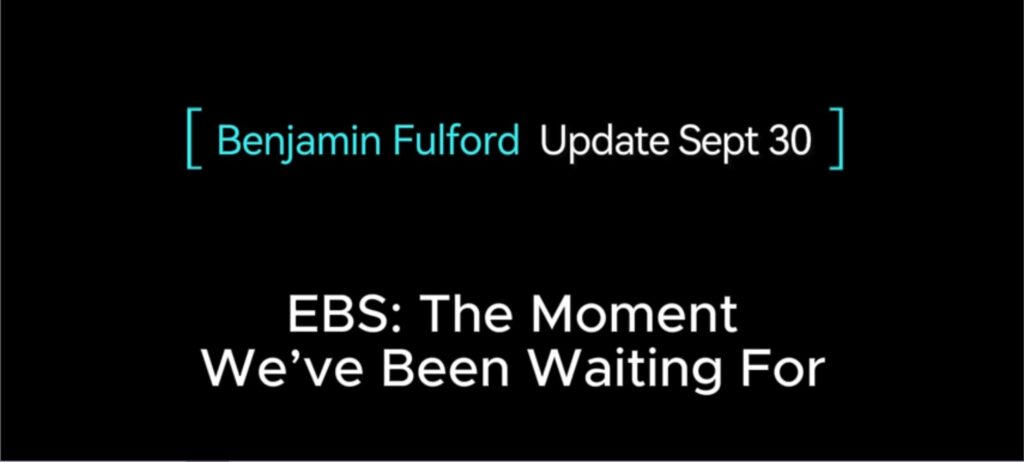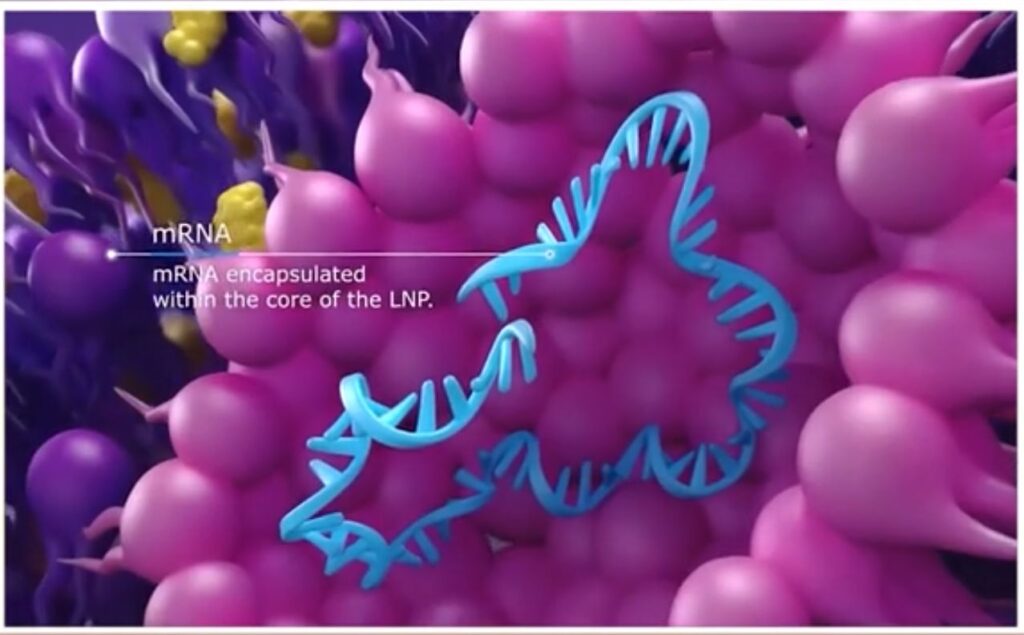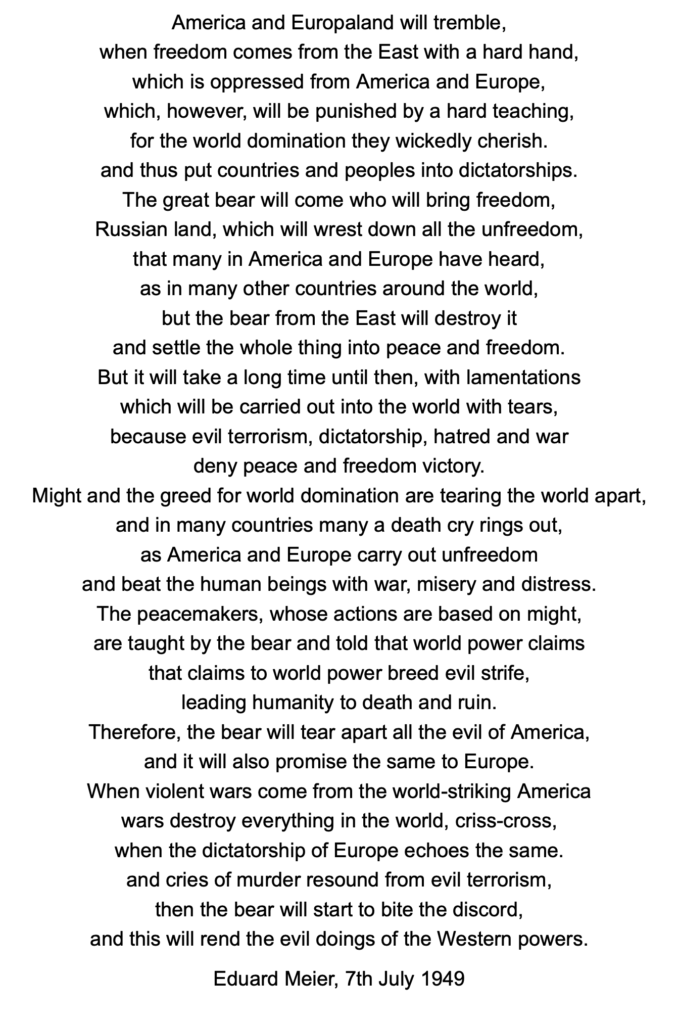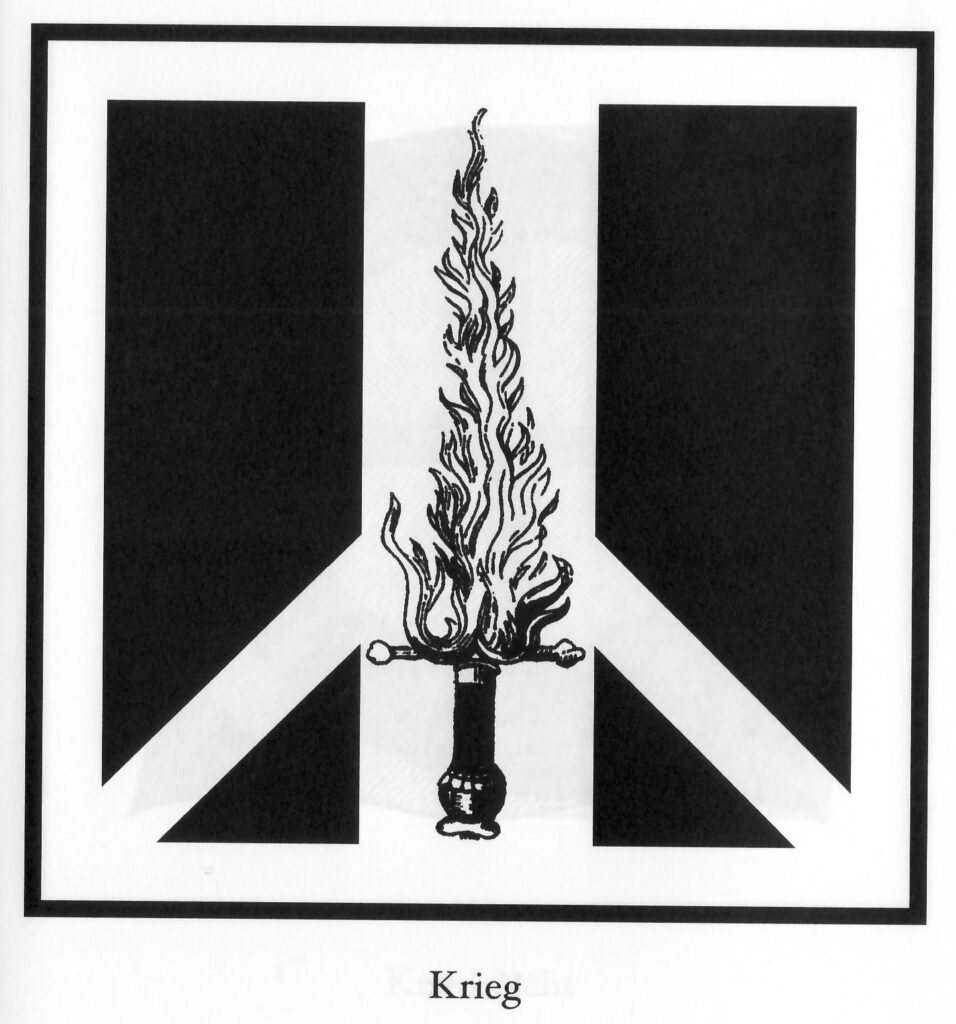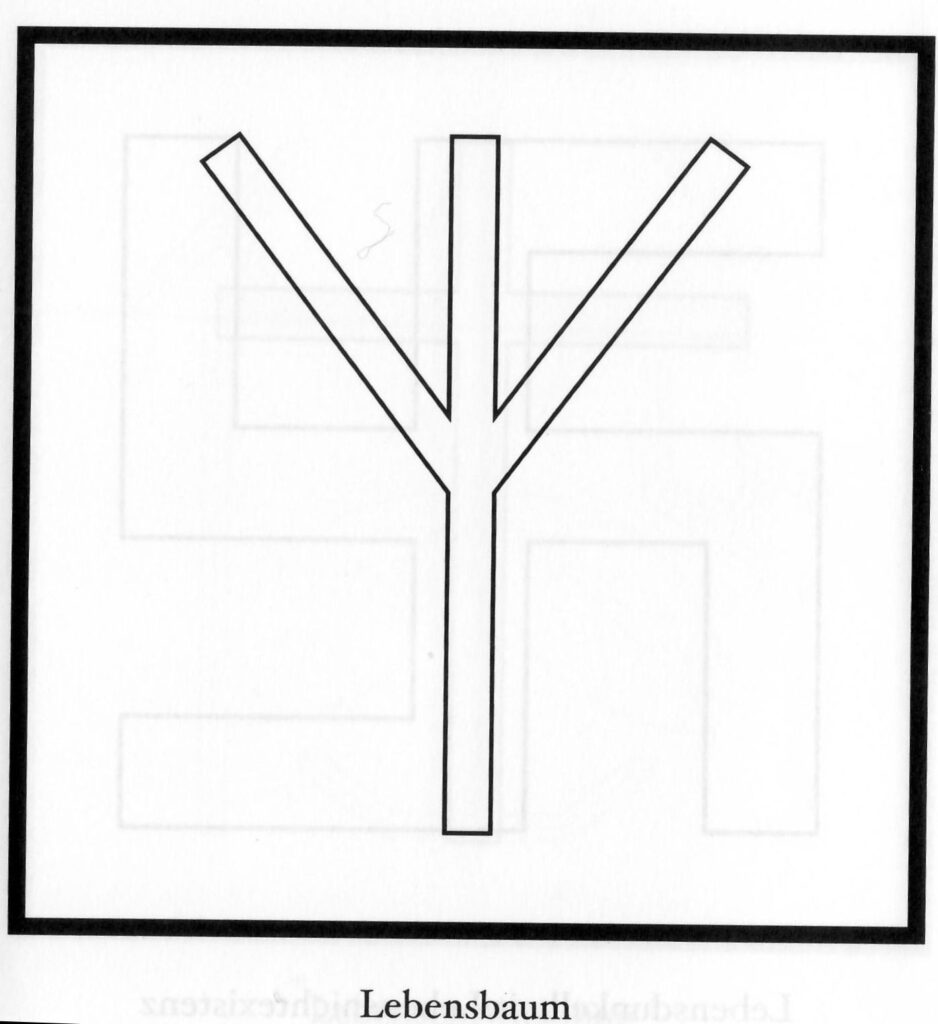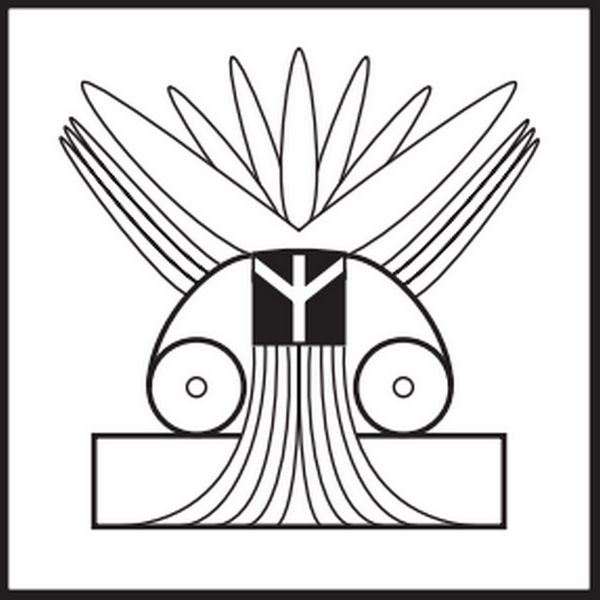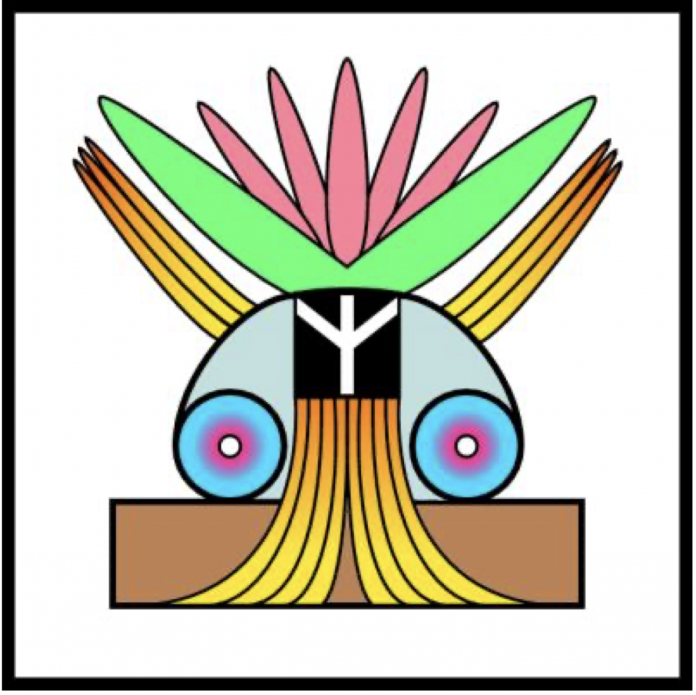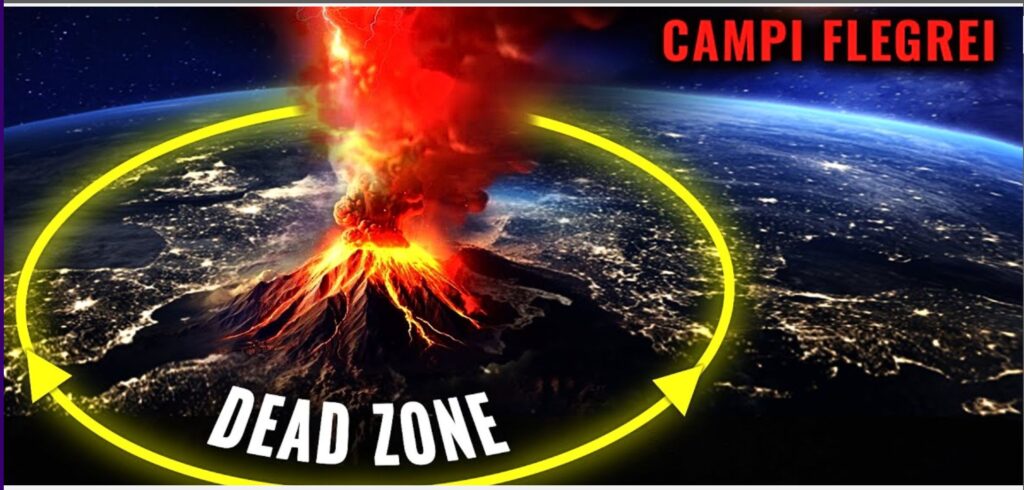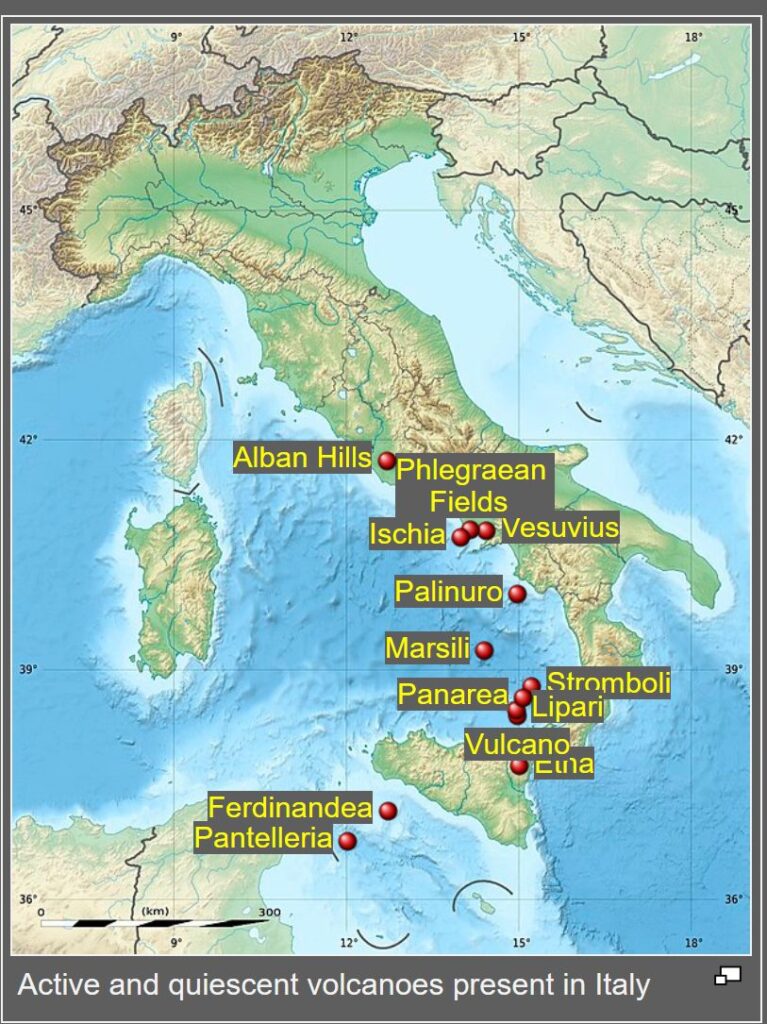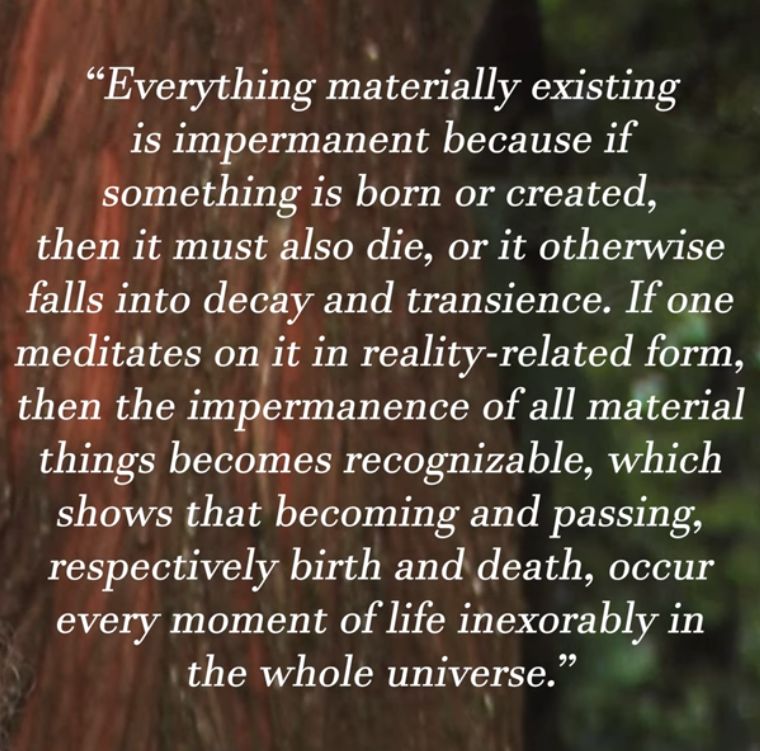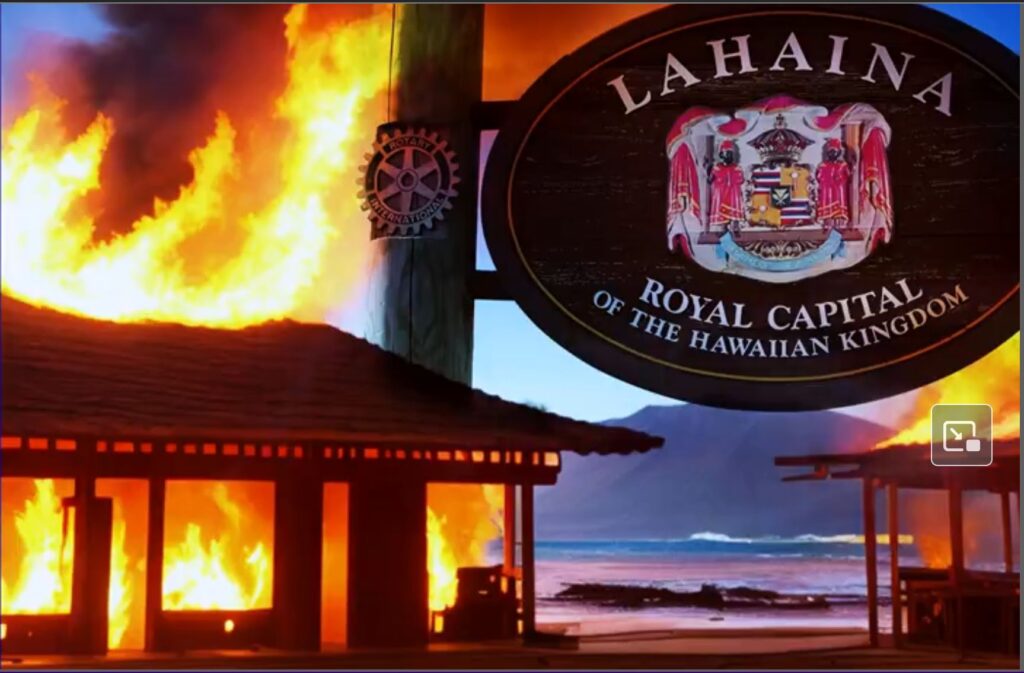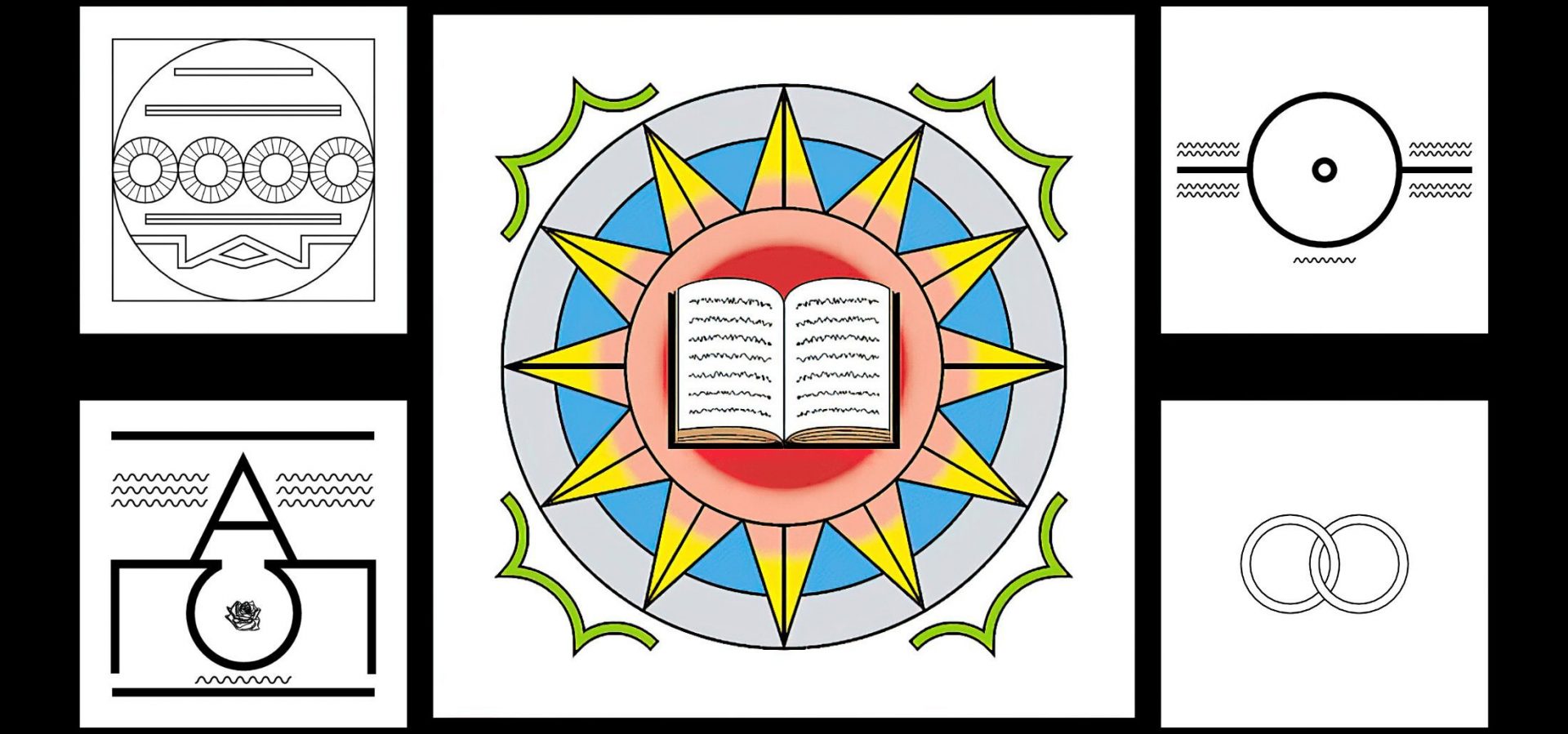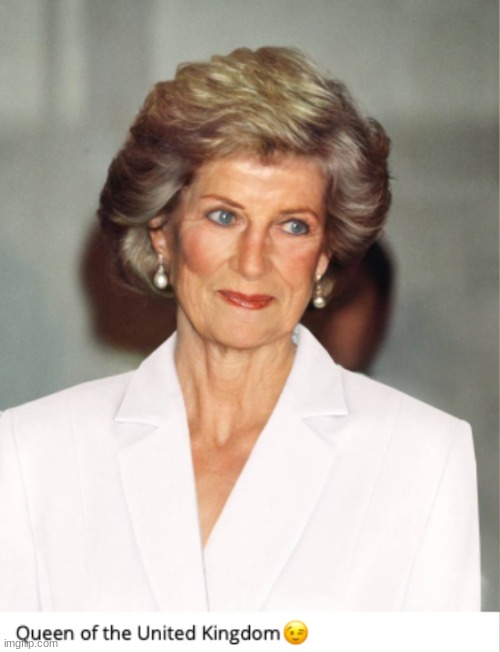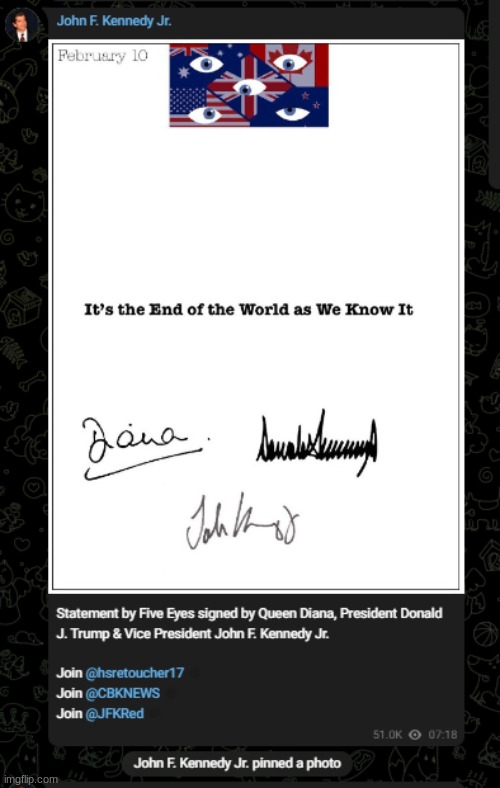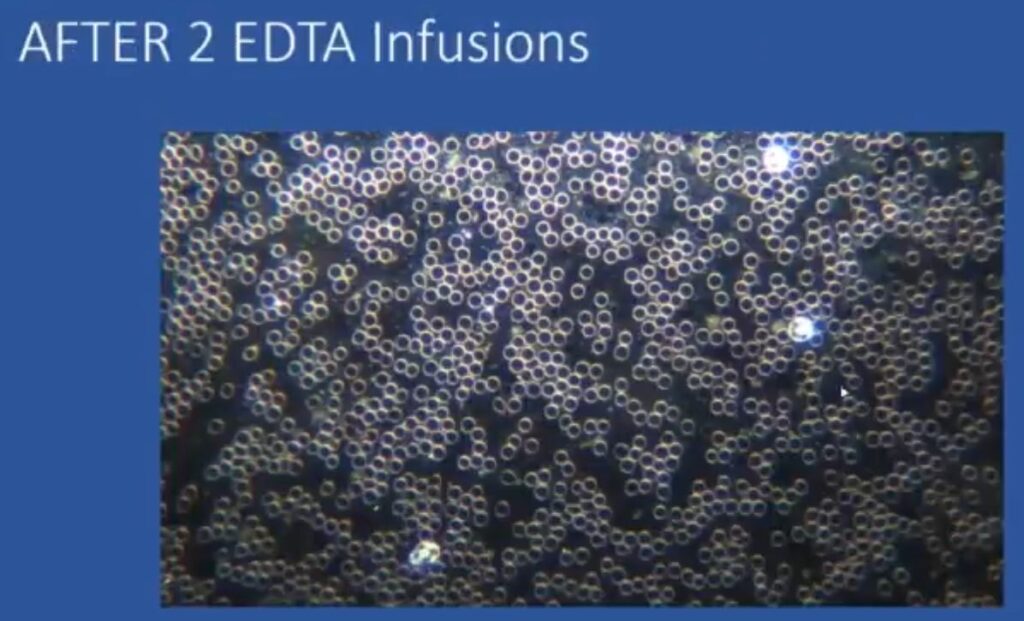Extracted from GCR by Judy Byington.
On the 20th of January 2025 Donald Trump was inaugurated as the president of the Republic of the United States.
Some unpatriotic, non-thinking people were shocked & critical of Trump that he did not have his hand on the bible when taking the oath. Obviously this was done for a reason.
Tues. 21 Jan. 2025 Email From Anon:
“The fact that Trump did not have his hand on the Bible when taking the Presidential Oath tells us that the Jan 20 Inauguration was for show, and the real inauguration would be on March 4, 2025 when Trump is Inaugurated as the 19th President of the Constitutional Republic of the United States of America. By not having his hand on the Bible while taking the Oath of Office, Trump avoided the conflict of swearing allegiance to two organizations, in conflict with one another. Either that or, Trump already took the Oath of Office already on January 16, 2025 with JFK Jr as his Vice President. Either way, a technical conflict was avoided, paving the way for some important future event. You can’t build a strong country on a foundation where conflict is embedded with its very outset. Some important element still has to fall into place, the foundation is not complete.”
Mon. 20 Jan. 2025 is Liberation Day
Trump Has Taken Command of a Nation Under Siege.
And Declared The World Was Under Military Occupation
With A Worldwide Sting Operation Underway
To Arrest Those Who Would Harm The Children
Or Commit Treason Against Sovereign Nations
Worldwide EBS Announcement Imminent
Just a few of Trump’s accomplishments by Day One:
Trump’s declassification of the Epstein files was likely to confirm that politicians, billionaires and Hollywood icons were part of a sick global network protected by unelected players who controlled our country – bureaucrats, intelligence agencies and corrupt politicians who have conspired for decades to dismantle American sovereignty.
Trump was withdrawing the US from WHO, the World Economic Forum and the United Nations, which have long operated as tools for centralizing power, reduced individual freedoms, and created a global system of control.
For instance, since 2020 the WHO has secretly expanded its influence through a network of covert agreements with governments and private corporations. These agreements grant the organization unprecedented power to override national sovereignty in the event of a declared “health emergency.”
Trump has exposed Facebook, Google and Twitter as tools of control, censoring dissent and manipulating elections.
Trump’s release of classified 9/11 files will expose the lies. Insiders claim key players within the government allowed, or even enabled, the attacks to justify endless wars and surveillance.
Trump has designated Cartels, including the dangerous Tren de Aragua, as foreign terrorist organizations. He will use the Alien Enemies Act to remove them.
Trump and Musk were starting a new Stock Exchange within the US.
Trump’s Global Military Alliance has launched strikes against Global Elite safe havens by monitoring Elite activity in real-time, cataloging financial transactions, encrypted communication and covert operation. The Alliance is using disinformation campaigns to sow confusion among the elites, forcing them to make mistakes that expose their operations.
They have uncovered Cabal operational bases, offshore accounts, shell corporations, black-market dealings, Human Trafficking routes, underground tunnels and bases.
The Alliance is systematically dismantling an infrastructure of Global Elite control that spans the globe from secret energy facilities to hidden communications networks, plus seized control of key Cabal broadcasting facilities.
They have targeted heads of state, CEOs, financial magnates and other influential operatives who have orchestrated the globalist agenda. They are freezing their assets and redistributing their wealth to The People.
The Alliance is working to restore Constitutional and Common Law, erasing the corrupt laws and regulations imposed by the elites. Right now Mass Arrests are being conducted, complete with public tribunals.
Soon an EBS will reveal ritual abuse, human trafficking, suppression of medical advancements, the banking Cartel, and governing structures of the United Nations, World Economic Forum and World Health Organization.
President Donald J. Trump, sworn in as Commander-in-Chief on January 20, 2025, has declared a state of emergency and launched an unprecedented plan to secure borders, crush Cartel Terrorist Organizations, and expand U.S. territories.
· In 1871 we lost our freedom when the Republic of the United States became the incorporated United States of America Inc.
· Before 1871, March 4 was always the date for a Presidential Inauguration.
· Thurs. 16 Jan. 2025: It was believed that President Trump, Commander-in-Chief, was sworn back into office on Thurs. 16 Jan. under US Military Law.
· Fri. 17 Jan. 2025: The Corporation of the UNITED STATES 1871 is dead. …JFK Q 17 on Telegram
· Mon. 20 Jan. 2025: “We’re now a Constitutional Republic. Not a Democracy. It matters. …DC’s government has no right to exist Constitutionally. Congress should not have delegated its lawmaking authority over to DC. Time to take it back.
Tues. 21 Jan. 2025: The nation’s Capitol of Washington DC will now be known as the “City of Washington.” The suffix “D.C.” has been removed if you do a location search for the US Capitol on Google Maps.
Get Ready For Ten Days of Communication Darkness. The power to the entire World will switch off briefly to install our new Star Link Satellite Internet. Shutdowns will occur, but only in certain areas. Banks will close. ATMs and Credit Cards will stop working. Have at least a month’s supply of food, water, cash, medicine and essential items on hand for yourself, your family and to share with others in case of emergency. If you’re unprepared, don’t worry. The Military will supply what you need. Nonstop education will be broadcast, teaching everyone about the true principles of Freedom and Justice.
REAL NEWS:
Tues. 21 Jan. 2025: 3 Mins Ago: Left Panics as Donald Trump Exposes Them All with Unexpected Announcement | Blogging/Citizen Journalism | Before It’s News
· Tues. 21 Jan. 2025: Trump Says Nancy Pelosi May Have Orchestrated January 6.
· Mon. 20 Jan. 2025 Massive Breaking Bombshell: Respected Industry Insiders Confirm The Devastating Los Angeles Fires Were A Deliberate Deep State Operation. …Alex Jones
· Mon. 20 Jan. 2025: Bomb explodes in Washington DC. 56 injured, 17 dead. Auburn police are searching for someone who put an explosive in a funeral attendee’s car and blew it up – destroying the vehicle and some surrounding trees. …Tucker Carlson
· Mon. 20 Jan. 2025: Actor Straun Rogers, paid to play a fake Joe Biden, got his final paycheck and a free flight home to California on Mon. 20 Jan. 2025. …Reports – News – Info on Telegram.
Mon. 20 Jan. 2025 EBS on Telegram: On his final day in office, Joe Biden issued pardons for Dr. Anthony Fauci, General Mark Milley, and the entire January 6th committee.
Dr. Fauci, accused of causing millions of deaths through biological warfare.
General Milley, who allegedly committed treason by sharing intel with China.
The January 6th committee is accused of fabricating evidence to imprison Americans while destroying real evidence that exposed their corruption.
· Mon. 20 Jan. 2025: BOOM! President Trump’s John F. Kennedy and Martin Luther King Jr. Files Bombshell: The Truth That Could Rewrite History! VIDEO – amg-news.com – American Media Group
· Tues. 21 Jan. 2025: Now that Donald Trump is President, it’s time for DOGE to end the money laundering. Senator Rand Paul found over a TRILLION dollars in his “annual Festivus Report on outrageous government waste
Mon. 20 Jan. 2025: BREAKING NEWS: Trump Announces Immediate Decisions: State of Emergency at the Southern Border, Energy Emergency, Cartels Declared as Terrorist Organizations, Repeal of the Green Deal – Updates in Progress – amg-news.com – American Media Group
· Tues. 21 Jan. 2025: President Trump’s Department of Homeland Security just FIRED the entire advisory committee, citing “misuse of resources.” Biden’s DHS funneled BILLIONS to facilitating illegal immigrants, so this move is much needed.
· Mon. 20 Jan. 2025: BOOM! MILITARY SOURCES EXPOSE TRUMP’S PLAN: HIGH-RANKING GENERALS AND ELITE COMMANDERS TO SEIZE CONTROL AND RETURN THE U.S. MILITARY TO THE PEOPLE! – amg-news.com – American Media Group
· Tues. 21 Jan. 2025 Fox News: Biden family bank accounts have been discovered that were used for receiving money from China, Romania, and Russia during Joe Biden’s time as Vice President – over $240K in payments sent directly to Joe himself. Perhaps this is why he decided to pardon his entire family on his way out the door yesterday?
Tues. 21 Jan. 2025: Trump’s Official Email Reveals Comprehensive Plan to Restore America: Strengthening Border Security, Dismantling Elite Power Structures, and Achieving Energy Independence! – Gazetteller
· Tues. 21 Jan. 2025: Globalists in Panic: Trump Shuts Down the World Health Organization (WHO) and Exposes Their Darkest Plans Yet! – Gazetteller
· Tues. 21 Jan. 2025: BREAKING: Biden Pardons Fauci, Milley, and January 6th Committee Members in Final Act to Shield Deep State Crimes—Trump’s Return Will Expose Their Secret Plans, Global Collusion, and Treason Against America! – Gazetteller
JUDY NOTE: Also on Mon. 20 Jan. 2025 Trump signed 200 Executive Orders, one of which NULLIFIED ALL OF BIDEN’S Executive Orders he made while in office.
· Obama, CIA Against Christmas, Religious Freedom, Freedom of Speech: Ex- CIA Officer says the Director of The CIA made a new policy that if anyone used the phrase “Merry Christmas” they would face punishments. Also exposes Barack Obama was behind eliminating religious freedom from the Department of State. “When I was in the CIA we were ordered into a conference room — This comes down from the Director of The CIA. You can no longer say merry Christmas in any office space. You cannot have a manger scene on your desk or on your door or you will face administrative penalties. The CIA was actively against Christians, and they used DEI as a method to suppress them. Going back to Obama, how they attacked Christians and eliminated the religious freedom post at the Department of State.” …GESARA/NESARA on Telegram
E. INTERNATIONAL CHILD SEX TRAFFICKING, ORGAN AND ADRENOCHROME HARVESTING RING RUN OUT OF THE VATICAN AND HOUSED IN CHINA’S THREE GORGES DAM IN THE 1500 MILE TUNNEL THAT RUNS BETWEEN THE VATICAN AND JERUSALEM:
F. TUES. 21 JAN. 2025: BREAKING NEWS SHAKES THE GLITZ AND FLAMOUR OF HOLLYWOOD to its core: wildfire investigators have uncovered a vast subterranean tunnel network beneath Los Angeles.
· This labyrinth of hidden passages, allegedly tied to a sinister child trafficking operation, has been linked to some of Hollywood’s most exclusive neighborhoods. According to investigators, these tunnels connect A-list celebrities’ mansions to a main artery stretching through Hollywood and Pacific Palisades.
· Even more disturbing, branches of this network reportedly held dozens of children—some rescued alive, others tragically not.
· As the mainstream media scrambles to cover up the discovery and distract the public, we’re here to uncover the chilling truths they don’t want you to hear.
· Whistleblowers have been warning that the US is riddled with secret tunnel networks used by child sex traffickers.
· Jewish tunnels in New York featuring bloodied mattresses and children’s cots shocked the world earlier this year.
· Hunter Biden expressed his love of a notorious tunnel network in the form of a tattoo on his back.
· According to investigators, Diddy has also been exposed using tunnels for trafficking purposes. He bought a house near the Playboy mansion which infamously featured tunnels connecting the nearby residences to the mother lode.
· Yes, the same Playboy that published photos of a nude 10-year-old Brooke Shields. If that is what they considered appropriate for the magazine, imagine what they considered appropriate behind closed doors.
· Tues. 21 Jan. 2025: Sean ‘Diddy’ Combs’ inner circle has exposed dark secrets of his alleged “red rooms,” where young girls were raped. The shocking revelations, shared by childhood friends, former bodyguards, and interns, paint a disturbing picture of his transformation into a monstrous figure. Whenever a studio or room was illuminated in red, it signified sexual activity, with some of the women involved being underage. A woman also alleged that Diddy and his team had the power to traffic and sell her to anyone they chose.
G. Tues. 21 Jan. 2025: BREAKING: BOMBSHELL REPORT:
Exposes European Royals in Human Hunting Parties and Child Sacrifice! …Julian Assange on Telegram
JUDY NOTE: I wrote this article back on Tues. 14 June 2014: European Royals Killing Naked Children for Fun at Human Hunting Parties? | Celebrities | Before It’s News (beforeitsnews.com)
· Explosive allegations have surfaced, accusing European royals of horrifying crimes. Eyewitnesses testified before the International Common Law Court of Justice, describing children being drugged, stripped, raped, hunted, and murdered in grotesque rituals involving global elites. The testimonies expose a dark network of power operating behind the scenes, shielded by wealth and influence.
· Eyewitness Accounts Reveal Chilling Details: Survivors recounted being forced to participate in these “human hunting parties,” where children, ages 14 to 16, were pursued through forests like prey. Witnesses described gruesome acts, including mutilation and the display of body parts as trophies.
· Key figures implicated include former Pope Ratzinger, King Albert of Belgium, and members of the Dutch royal family. Allegedly, these atrocities took place on estates and properties guarded by royal forces, ensuring secrecy.
· One woman testified to witnessing the torture and murder of children at a hunting event in Belgium. Another claimed to have seen Pope Ratzinger kill a child during a ritual in 1987. These horrifying acts, shrouded in secrecy, appear to be part of the Ninth Circle Satanic Cult, a network accused of ritual child sacrifices for power and control.
· Historical Evidence of Abuse and Cover-Ups: The court heard accounts linking these crimes to historical patterns of abuse. In Canada, the remains of Indigenous children were uncovered at residential schools tied to the Catholic Church and the Crown. Allegations against Queen Elizabeth and Prince Philip regarding the disappearance of children in 1964 remain unresolved.
· Documents provided to the court reveal connections between Vatican officials, Nazi collaborators, and child sacrificial cults. The “Knights of Darkness,” allegedly established by the Jesuits and the SS, were identified as key players in these rituals, with Ratzinger named as a participant.
· A Global Web of Corruption: Testimonies suggest these crimes span continents, implicating elites in Europe, North America, and beyond. Evidence points to the use of juvenile detention centers to supply victims and the systematic cover-up of these atrocities by powerful institutions.
· Justice Demands Action: The ICLCJ is calling for global accountability. Witnesses and whistleblowers have been offered amnesty and financial rewards for exposing the truth. As new evidence emerges, the court vows to dismantle this horrifying network.
Restored Republic United States of America
· The Re-inhabited Republic for These United States of America, Dr. Miarecki: (7/12/2024) | SG Sits Down w/ USAF Lt Col (Ret) Dr. Sandy Miarecki to Discuss the Re-inhabited Republic For These United States (rumble.com) How To Save America | Republic for USA (republicfortheunitedstatesofamerica.org)
Want to hold a seat in the United States of America Republic? https://members.republicfortheunitedstatesofamerica.org
H. TUES. 21 JAN. 2024: REVOLUTION DISCLOSED:
The Military Occupation Set in Motion by Trump’s Executive Orders – The Reality Since November 5, 2016! …QAnon Warriors on Telegram
· Disclose: the explosive truth behind Trump’s inauguration—a military occupation that began in 2016 and continues today. Dive deep into the secret power of the Judge Advocate General, military tribunals, and the war for America’s future. The old government is gone—it’s time to wake up!
· Military Occupation: The Reality Since November 5, 2016 Let’s be clear: the military occupation of the United States didn’t begin on January 20, 2017. It started earlier, on November 5, 2016, when the new military-driven regime’s wheels were set in motion. Since that day, the country has been under the control of forces far beyond conventional government’s reach. And it’s still happening, right under our noses.
· Donald J. Trump didn’t just inherit the presidency; he inherited the authority of a War Powers President, a Commander-in-Chief backed fully by the military. Most Americans are oblivious to this fact, thanks to media complicity in keeping this truth hidden. But the signs are there for those who dare to look.
· Emergency Executive Orders: The Blueprint for Control Under Trump, 11 Emergency Executive Orders were enacted, each a step towards consolidating power and extending military control over the government. These EOs, still in effect today, were not mere policies but a blueprint for maintaining order in a nation on the brink. The Biden administration, nothing more than a puppet, has only extended these orders, ensuring the military’s firm grip remains.
· The Puppet Government: A Nation Under Siege The current administration is a facade, a puppet government designed to maintain the illusion of democracy while real power lies with the military. The extension of Trump’s Emergency Executive Orders is proof. The old system is dismantled, those in power arrested for treason.
· The Wake-Up Call: Accepting the New Reality The old system is dead, replaced by military control. The sooner Americans accept this, the better they’ll be prepared for the challenges ahead. The government you thought you knew is gone, replaced by a system prioritizing national security and military oversight. Trump’s inauguration marked this new era’s beginning, and every day since has been a further step into this reality. The old system is gone, and it’s never coming back. The military is in charge now.
· The Future Under Military Rule The U.S. is no longer the nation it once was; it’s now governed by a military regime, operating behind scenes, pulling the strings of the puppet government the public sees. It’s time to accept the truth and prepare for what’s to come. In this new world, the military reigns supreme.
· The Hidden Reality of Trump’s Inauguration: A Moment of Military Occupation January 20, 2017, wasn’t just a peaceful transition of power. It was the formal start of a military occupation, a day when Donald J. Trump took command of a nation under siege. This was more than an inauguration; it was a clear signal that the military was now in control. The presence of military figures at the inauguration wasn’t just ceremonial; it was a declaration of the new era of military justice and power.
I. TUES. 21 JAN. 2025: STAR LINK IS READY TO SEND EBS SIGNAL TO ALL CELL PHONES IN THE WORLD, JUST WAITING FOR THE GREEN LIGHT …Mr. Pool on Telegram
· Star Link is about to transform emergency communications globally. It’s not just another tech launch—this is the beginning of a revolution, one that could reach every cell phone in the world. Imagine that. No one out of reach. Star Link is waiting for the go-ahead to send Emergency Broadcast System (EBS) signals directly to billions of devices.
· We are in the calm before the storm. A technological and political shift is on the verge of happening. Star Link, Musk’s brainchild, could be the key player in a global plan much larger than any of us thought possible. Some say it’s tied to Q’s sting operation. Others point to the looming DEFCON One alert, the highest level of military readiness.
· What’s coming? A system that can reach everyone, instantly. Star Link was supposed to bring internet to remote areas. Now, it’s something much bigger: every cell phone becomes a lifeline, capable of delivering life-saving alerts in real time. No one is left in the dark. This is total global communication, like nothing we’ve ever seen.
· The implications? Massive. In moments of crisis—natural disasters, terrorist attacks, anything—the EBS signal can give instant updates, even in the most isolated areas. This is about control, power, and safety. The world is waiting for the green light.
· DEFCON One Alert: we’ve never been closer to the edge. What if this alert is linked to Star Link’s signal? Think about it—coincidence? Hardly. Something huge is brewing.
· Followers of Q are already buzzing. The grand sting operation to expose corruption on a massive scale may be tied to this. Could the EBS signal be the final piece in Q’s plan? Once activated, it could drop the truth to billions at once.
· We’re about to witness a new era of global communication. The potential is staggering: every phone on the planet receiving emergency alerts, anytime, anywhere. The world is on the brink of something monumental. Stay sharp. When this goes live, it could change everything.
J. TUES. 21 JAN. 2025: BOOM! TRUMP’S JFK, RFK, AND MLK FILES BOMBSHELL: The Truth That Will Change Everything! …Carolyn Bessette Kennedy
· Breaking: On Inauguration Day 2025, President Donald J. Trump has set the nation ablaze with a promise unlike any before. He vows full transparency on the assassinations of JFK, RFK, and MLK. No more secrets. No more lies. America, brace yourselves—the truth is coming! “It’s all going to be released.” These words, spoken with conviction, signal the end of decades-long cover-ups. Trump has committed to exposing every classified file tied to the assassinations of John F. Kennedy, Robert F. Kennedy, Martin Luther King Jr., and more. Files that, for too long, have remained hidden from the American people.
· Why This Matters Now: The assassination of JFK in 1963 has haunted the nation for over six decades. The official story of Lee Harvey Oswald as the “lone gunman” never sat right with millions of Americans. Whispers of CIA involvement, mafia ties, and even foreign governments linger. Now, Trump’s bold pledge offers the chance to shatter the narrative and uncover what really happened. But it’s bigger than JFK. The assassinations of RFK and MLK in 1968 remain shrouded in mystery, with doubts cast on the official stories of lone killers. Could there have been coordinated efforts to silence these transformative leaders? Trump’s promise has reignited hope that the truth will finally be revealed.
· The Deep State Connection: What did JFK know that made him a target? His clashes with the CIA over covert operations and his threat to dismantle the agency point to a darker narrative. Many believe the so-called “deep state” orchestrated his assassination to protect their agenda. If Trump’s disclosures confirm this, it could rewrite history—and reveal the true nature of power in America.
· Trump’s Legacy: A President of Transparency: Unlike his predecessors, Trump has proven he’s unafraid to challenge the status quo. This isn’t just a promise—it’s a declaration of war against secrecy. If he delivers, this move will cement his legacy as the leader who dared to pull back the curtain.
· What’s Next?: The files could reveal it all: CIA plots, mafia connections, or even attempts to stifle the civil rights movement. If even a fraction of these truths come to light, the impact will be seismic, shaking politics, academia, and the media to their core.
· America, Get Ready: This is the moment. This is the storm we’ve been waiting for. January 20, 2025, will go down in history as the day the fight for transparency took center stage. The truth is out there—and Trump is about to unleash it. Stay tuned.
K. TUES. 22 JAN. 2025: HERE’S WHAT TRUMP HAS DONE SINCE HIS 2025 INAUGURATION: …Gitmo TV on Telegram
1. PARDONS FOR PATRIOTS! – Over 1,500 January 6 prisoners received FULL pardons! Justice served for the heroes who stood for truth.
2. CRUSHING THE CARTELS! – Drug cartels declared foreign terrorist organizations – military action authorized! No more games.
3. AMERICA FIRST, ALWAYS! – Paris Climate Agreement? GONE. Trump pulled out to protect American jobs and energy independence!
4. NO TO RADICAL AGENDAS! – Gender ideology? Shut down! A return to traditional values to protect our children and families.
5. BIRTHRIGHT CITIZENSHIP ENDED! – No more loopholes for illegal immigrants. Citizenship is for Americans, not lawbreakers!
6. UNLEASHING ALASKA! – Alaska’s energy resources unlocked. America becomes an energy powerhouse again!
7. SECURING OUR BORDER! – “Remain in Mexico” reinstated! Illegal crossings are PLUMMETING. America’s borders are SACRED.
8. FREE SPEECH RESTORED! – Government censorship? Done. Your voice matters again!
9. ACCOUNTABILITY FOR TRAITORS! – Former officials leaking secrets? Now, they face JUSTICE.
10. EFFICIENCY REVOLUTION! – Created the Department of Government Efficiency (DOGE) to eliminate waste and ensure YOUR tax dollars are used wisely.
11. REVERSING BIDEN’S DAMAGE! – 78 disastrous executive actions ERASED, from climate nonsense to reckless spending. Trump is cleaning house!
· THE STORM IS HERE! America’s enemies are panicking, patriots are RISING, and history is being written. Are you ready for what comes next? STAY VIGILANT. STAY STRONG. The fight for freedom isn’t over. We are just getting started!
L. TUES. 21 JAN. 2025 IT HAS BEGUN! President Trump Declares State of Emergency, Mobilizes U.S. Forces to Secure Borders and Expand U.S. Territories. …Gitmo TV on Telegram
· President Donald J. Trump, sworn in as Commander-in-Chief on January 20, 2025, has declared a state of emergency and launched an unprecedented plan to secure borders, crush cartels, and expand U.S. territories. This bold move signals the start of a new era—one of strength, security, and unapologetic American dominance.
· Securing the Southern Border: Trump wasted no time declaring the southern border a national emergency. “Illegal entries stop now,” he proclaimed. Thousands of troops are deploying with advanced tech to fortify the border. Walls will rise higher, surveillance will tighten, and deportations have already begun. The message is clear: America will no longer tolerate lawlessness.
· Crushing the Cartels: Trump has officially designated drug cartels as terrorist organizations, giving the military full authority to strike at their networks. Special forces are targeting cartel strongholds, dismantling operations, and cutting off revenue streams. Trump declared, “We will defend this nation like never before!”
· Expanding American Territories: In a groundbreaking move, Trump announced plans to bring Greenland, Canada, and the Panama Canal under U.S. control. Greenland’s resources will fuel economic growth, Canada’s vast territories will provide expansion opportunities, and the Panama Canal will ensure dominance over global trade routes.
· The Rise of the Trump Doctrine: This doctrine prioritizes American sovereignty, rejecting outdated diplomacy. Trump’s leadership aims to restore U.S. dominance on the global stage, creating a secure and prosperous future for all Americans.
· Military Power Unleashed: The U.S. military is mobilizing at an unprecedented scale. Troops, tanks, and aircraft are deploying strategically, while defense budgets are expanding to maintain unmatched superiority.
· A Call to Patriots: Trump’s actions are not without criticism, but he remains unwavering: “We will win. They will lose.” His presidency is a call to action for patriots. This is a defining moment in history. The world is watching, and America is taking the offensive.
· The Storm is here. The fight for freedom has begun. Patriots, stand strong.
M. TUES. 21 JAN. 2025: EXECUTIVE ORDERS Signed by President Trump on Mon. 20 Jan. 2025: …Reports – News – Info on Telegram.
· Guarantees the States Protection Against Invasion
· Restoring Names That Honor American Greatness
· Designating Cartels and Other Organizations as Foreign Terrorist Organizations and Specially Designated Global Terrorists
· Reforming the Federal Hiring Process and Restoring Merit to Government Service
· Ending Radical and Wasteful Government DEI Programs and Preference
· Defending Women from Gender Ideology Extremism and Restoring Biological Truth to the Federal Government
· Establishing and Implementing the President’s “Department Of Government Efficiency”
· America First Policy Directive to the Secretary Of State
· Protecting the United States from Foreign Terrorists and Other National Security and Public Safety Threats
· Unleashing Alaska’s Extraordinary Resource Potential
· Protecting the American People against Invasion
· The Organization for Economic Co-operation and Development (OECD) Global Tax Deal
· Organization of the National Security Council and Subcommittees
· Reevaluating and Realigning United States Foreign Aid
· Temporary Withdrawal of All Areas on the Outer Continental Shelf from Offshore Wind Leasing and Review of the Federal Government’s Leasing and Permitting Practices for Wind Projects
· Declaring a National Energy Emergency
· Restoring Accountability for Career Senior Executives
· Promoting Beautiful Federal Civic Architecture
· Restoring the Death Penalty and Protecting Public Safety
· Putting People over Fish: Stopping Radical Environmentalism to Provide Water to Southern California
· Securing Our Borders
· Protecting the Meaning and Value of American Citizenship
· Realigning the United States Refugee Admissions Program
· Unleashing American Energy
· Clarifying The Military’s Role in Protecting the Territorial Integrity of the United States
· America First Trade Policy
· Memorandum to Resolve the Backlog of Security Clearances for Executive Office of the President Personnel
· Declaring a National Emergency at the Southern Border Of The United States
· Holding Former Government Officials Accountable For Election Interference and Improper Disclosure Of Sensitive Governmental Information
· Restoring Accountability to Policy-Influencing Positions within the Federal Workforce
· Withdrawing the United States from the World Health Organization
· Application of Protecting Americans from Foreign Adversary Controlled Applications Act to Tik Tok
· Granting Pardons and Commutation of Sentences for Certain Offenses Relating To The Events At Or Near The United States Capitol On January 6, 2021
· Putting America First In International Environmental Agreements
· Delivering Emergency Price Relief for American Families and Defeating the Cost-of-Living Crisis
· Hiring Freeze
· Regulatory Freeze Pending Review
· Return to In-Person Work
· Ending the Weaponization of the Federal Government
· Restoring Freedom of Speech and Ending Federal Censorship
· Initial Rescissions of Harmful Executive Orders and Actions
· The Inaugural Address
· Flying the Flag of the United States at Full-Staff on Inauguration Day
· President Trump Designates Chairmen and Acting Chairmen
· President Trump Announces Acting Cabinet and Cabinet-Level Positions
· President Trump Announces Sub-Cabinet Appointments
· President Trump Announces Cabinet and Cabinet Level Appointments
· President Trump’s America First Priorities
N. ON MON. 20 JAN. 2025: DONALD TRUMP SIGNED AN EXECUTIVE ORDER TO FINALLY WITHDRAW THE UNITED STATES FROM THE WORLD HEALTH ORGANIZATION. …EBS on Telegram
· There is official Testimony that Bill Gates was behind the World Health Organization global power grab.
· The WHO was also involved in “WHO sex crime scandal, where 83 WHO staff has sexually exploited girls and women — including rape — victims as young as 13”
· “Gates bought the WHO, and they now recommend his products. It is that simple. WHO’s current sugar daddy is Bill Gates, who has made billions out of his investment in the same vaccines that WHO promotes.”
· This official testimony is absolutely INSANE. Bill Gates must face charges for Crimes Against Humanity
O. INCOME TAX, IRS, FEDERAL RESERVE GOING DOWN:
P. TUES. 21 JAN. 2025: DECLASSIFIED:
IRS and Federal Reserve Caught Red-Handed in Massive Economic Enslavement Scam! …JFK Awakening Q17 on Telegram
· In the hidden corridors of what we call our government lies a deception of epic proportions—the Internal Revenue Service (IRS). This agency, falsely portrayed as a legitimate branch of the government, is in fact a tool wielded by the global elite to further their control, expand their wealth, and tighten their grip on the average citizen.
· The IRS is often seen as a cornerstone of the U.S. Government, but in reality, it is a critical cog in a well-oiled machine of oppression. Historical evidence reveals a dark truth that whistleblowers like William Cooper have risked, and even lost, their lives to expose. Cooper revealed the IRS for what it truly is: a fraudulent institution designed to drain the wealth of the masses and funnel it into the pockets of the elite. According to Cooper, the federal income tax is a tool of theft, enforced under the guise of legality, when in truth, no law requires most Americans to pay it.
· This vast scam was solidified with the secretive creation of a separate Federal Revenue Service in Puerto Rico, a move reeking of legal evasion and dubious intent. The 16th Amendment, often cited as the constitutional basis for the income tax, is a masterpiece of misdirection. While it grants Congress the power to levy taxes, it does not mandate that individuals must pay an income tax—a crucial distinction ignored by those in power to deceive the public.
· The IRS exploits this ambiguous language to force compliance, using fear as its primary weapon against anyone who dares to question or resist. What’s even more alarming is the depth of the conspiracy involving the IRS. Buried within the tax code and enforced by the IRS are mechanisms deliberately designed to impoverish the middle class and widen the wealth gap. These are not accidental oversights; they are calculated tools of economic warfare meant to keep the rich richer and the average American economically shackled and easier to control.
· This system of economic servitude is upheld not just through tax collection but through psychological warfare—audits, penalties, and threats are all part of the IRS’s arsenal. The agency presents itself as all-powerful and all-knowing, fostering a climate of fear that ensures compliance.
· The IRS’s true role extends beyond mere economic control. It acts as a gatekeeper, maintaining social order and preventing any real economic threats to the elites. By keeping the population in a state of economic uncertainty and dependency, they suppress the entrepreneurial spirit and innovation that could challenge their dominance.
· Amidst this dark reality, the actions of leaders like President Trump, who took on these corrupt establishments, stand out as beacons of hope. Trump’s presidency marked a direct confrontation with these shadowy figures, with efforts to dismantle the undue influence of the Federal Reserve and bring transparency to the IRS. His actions were not just political—they were revolutionary, aiming to break the chains that bind the American spirit and wallet.
· The fight against the IRS and its masters goes beyond taxes; it’s about reclaiming the American Dream. It’s about exposing and dismantling a system rigged to benefit the few at the expense of the many. As we continue to uncover the extent of their deception, we must rally, resist, and rebuild. The truth is our weapon, and with it, we must cut through the lies that have long enslaved us.
· This is a call to awaken from complacency, to stand united, and to take back what is rightfully ours before it’s too late.
Q. TUES. 21 JAN. 2025:
THE IRS AND INCOME TAX IS COMING TO AN END IN AMERICA! The External Revenue Service was the first step to achieve this goal. Trump’s Commerce Secretary said we were going to get rid of income taxes and make foreign governments and corporations pay to do business in America. Our government will be paid for with tariffs. It’s going to happen. The only question is: How soon will it happen? …Edward Snowden
R. MON. 20 JAN. 2025: KABOOM! THE ERA OF NESARA! Trump Paves the Way to Abolish Income Tax with Tariffs! Here’s the Deal! …Mr. Pool Secrets on Telegram
· BREAKING: Trump’s bold plan to abolish income tax by replacing it with tariffs could be a game-changer for every American! Inspired by NESARA and McKinley’s economic success, this move could put more cash in YOUR pocket, shrink government waste, and fuel a NEW era of American prosperity.
· A Historic Turn: Trump is tapping into America’s wealth potential by reviving the tariff strategy that McKinley successfully used in the late 1800s. Imagine an America where the government is funded by tariffs on foreign goods, and your earnings are finally untaxed! McKinley’s tariff-based model brought the U.S. unprecedented surplus wealth — a time when bridges, dams, and national parks were funded without taking a dime from American paychecks.
· Flashback to McKinley’s Legacy: Back in 1887, tariff income was so high the government had more money than it could spend! It’s this model that Trump aims to reignite, bringing America back to an era of economic independence. Picture it: foreign entities paying to sell in America, while citizens keep every dollar they earn.
· Trump’s Vision: NESARA’s Dream, Our Future: Trump’s tariff proposal aligns with NESARA’s promise of returning power to the people. Without income tax, Americans would keep more of what they earn, with the government funded directly through tariffs on foreign goods. This isn’t just a financial move; it’s a revolution. Imagine more cash in your pocket, more power in your hands, and America thriving on international wealth!
· Tariffs vs. Income Tax: A Modern Economic Shift: This isn’t just about saving you money; it’s about ending a taxation system that’s buried Americans in complexity and bureaucracy. No income tax means a leaner government, less IRS interference, and a boost in disposable income for every American.
· Why This Works: With tariffs, foreign companies pay their way into the U.S. economy, filling our coffers while we keep our earnings intact. This isn’t just patriotic; it’s economically brilliant. Every dollar YOU earn stays with you — and our nation thrives on the wealth of international trade.
· Downsizing Government Bureaucracy with Musk’s Efficiency: Imagine if someone like Elon Musk streamlined the government to align with this vision. With his knack for efficiency, he could eliminate bureaucratic waste, transforming America’s financial landscape into a leaner, stronger, and more self-sufficient powerhouse.
· Trump’s Tariff Talk: No Coincidence!: This isn’t just a campaign gimmick. Trump is paving the way for a seismic shift that would unshackle Americans from income tax once and for all. The model worked over a century ago — and with the right strategy, it can work again, empowering Americans to thrive on their own terms.
· A Vision for NESARA’s Promise: Economic Sovereignty Returns!: Imagine an America where YOUR hard-earned dollars aren’t siphoned by income tax. NESARA’s concept of returning economic power to the people aligns with Trump’s vision, giving Americans the freedom to grow, save, and build their future without the IRS breathing down their necks. This is the dream of NESARA, reimagined for a modern America.
· What Does This Mean for YOU?: Higher disposable income, simplified finances, and an America First economy driven by U.S. citizens, not bureaucrats. This is the revolution you’ve been waiting for — a call for economic freedom and national pride. With Trump’s tariff plan, America is on the brink of reclaiming its economic sovereignty, and YOU are the key to making it happen.
S. TUES. 21 JUNE 2025: BREAKING! TRUMP’S MILITARY ALLIANCE LAUNCHES Final Strike Against Global Elites! Bunkers Destroyed, Safe Havens Exposed, and Quantum Operations in Full Force – The Cabal’s Collapse Has Begun! – Gazetteller Trump’s Military Alliance Launches Final Strike Against Global Elites! Bunkers Destroyed, Safe Havens Exposed, and Quantum Operations in Full Force – The Cabal’s Collapse Has Begun!
Phase One: Global Surveillance and Intelligence Operations: The backbone of the alliance’s strategy is an unparalleled intelligence network powered by Quantum Grid technology. This system monitors elite activity in real-time, cataloging every financial transaction, encrypted communication, and covert operation. Using this quantum-based surveillance, the alliance has uncovered:
1. Elite Strongholds: Hidden underground facilities, secret bunkers, and luxury compounds that have served as operational bases for the cabal.
2. Financial Networks: Offshore accounts, shell corporations, and black-market dealings that have kept the elites insulated from legal consequences.
3. Human Trafficking Routes: Pathways and networks used by the elites to engage in their most heinous crimes, including trafficking.
Military Special Forces units are already targeting these locations. Recent reports of unusual seismic activity and unexplained explosions near suspected elite bunkers suggest that precision strikes are underway. These are not accidents—they are coordinated efforts to collapse the infrastructure that has allowed the elites to operate with impunity.
Phase Two: Decapitation of Leadership Networks: The Alliance’s primary focus is to neutralize the key figures within the elite’s hierarchy. This involves targeting heads of state, CEOs, financial magnates, and other influential operatives who have orchestrated the globalist agenda. Arrests are being conducted under the cover of secrecy, with plans for public tribunals to follow once the dust settles.
· Covert Detentions: High-value targets are being detained quietly to prevent public panic and elite countermeasures.
· Asset Seizures: Military units, in cooperation with the Quantum Financial System, are freezing assets and redistributing wealth as part of GESARA’s wealth transfer initiatives.
· Psychological Warfare: The Alliance is using disinformation campaigns to sow confusion among the elites, forcing them to make mistakes that expose their operations. Trump’s administration is reportedly overseeing these actions, ensuring that no elite figure escapes accountability.
· Military Tribunals are being prepared, and insiders suggest that classified evidence, including video recordings, encrypted files, and witness testimonies, will be made public during these proceedings.
Phase Three: Destruction of Elite Infrastructure
The elites have spent decades building an infrastructure of control that spans the globe. From secret energy facilities to hidden communications networks, this infrastructure is critical to their survival. The Alliance is systematically dismantling it:
1. Underground Bases and Tunnels: Using advanced weaponry such as bunker-busting missiles and directed energy weapons, the military is destroying subterranean facilities that house weapons, technology, and trafficking operations.
2. Energy Monopolies: Free energy technologies suppressed by the elites are being released to the public, rendering the traditional energy industry obsolete. This move not only cripples the elites financially but also liberates humanity from their control.
3. Media Networks: The mainstream media, long a propaganda tool for the Cabal, is being targeted. Military operations are rumored to have seized control of key broadcasting facilities, ensuring that the truth can be disseminated without interference.
Phase Four: Public Disclosure and Mass Arrests: As the Alliance’s operations gain momentum, the stage is being set for public disclosure. The Emergency Broadcast System (EBS) is expected to deliver a series of shocking revelations about the crimes of the global elite. These broadcasts will feature irrefutable evidence of:
· Ritualistic abuse and human trafficking.
· Manipulation of global events to maintain control.
· Suppression of life-saving technologies and medical advancements.
· Simultaneously, mass arrests will occur. High-profile figures will be paraded before the world, their crimes exposed in the most public and humiliating way possible. These arrests will signal the collapse of the old world order and the dawn of a new era.
Elite Safe Havens No Longer Safe: The Elites have long relied on secure safe havens to evade justice. These include:
· Isolated Islands: Luxury compounds equipped with private airstrips and advanced security.
· Underground Cities: Facilities capable of sustaining life for decades, hidden beneath mountains and deserts.
· Space-Based Escape Plans: Rumors of Elite plans to flee Earth have been confirmed by whistleblowers. The Alliance has reportedly neutralized these plans by disabling rogue space programs. The Military Alliance is systematically targeting these locations. Leaked reports suggest that entire underground cities have been flooded or collapsed, cutting off the elites’ escape routes.
Phase Five: The New World Order’s Collapse: The final phase of the military plan involves the complete dismantling of the mechanisms that allowed the elites to maintain control. This includes:
· The Banking Cartel: The Quantum Financial System is rendering traditional banking obsolete. Central banks are being dismantled, and their assets are being redirected into prosperity funds for humanitarian projects.
· Global Governance Structures: Institutions like the United Nations, World Economic Forum, and World Health Organization are being exposed as tools of the Cabal. Plans are in place to replace these corrupt organizations with systems that prioritize sovereignty and transparency.
· Cultural Reset: The Alliance is working to restore Constitutional and Common Law, erasing the corrupt laws and regulations imposed by the elites.
Trump’s Vision: A Future Without Elite Oppression: Trump’s leadership is not just about erasing the past—it’s about building a future where humanity is free from elite manipulation. His administration is prioritizing:
· The release of suppressed technologies, including food replication devices and medical advancements.
· The implementation of holographic education systems to replace corrupt institutionalized learning.
· A decentralized communication network that ensures freedom of speech and privacy.
A Call to Action: Stay Vigilant: The military alliance’s efforts are unprecedented, but they are not without risk. The elites are desperate, and their final acts of defiance could include false flag attacks, economic sabotage, and attempts to incite global conflicts. Patriots must remain vigilant, informed, and ready to support the alliance in any way necessary.
The world is on the cusp of liberation. With Trump at the helm, the military alliance is executing a plan that will forever change the course of history. The elites’ reign is over, and humanity’s golden age is within reach. Prepare for the storm, patriots—the final reckoning is here.
T. TUES. 21 JAN. 2025: THE OPEN STORM – OVERT OPERATIONS BEGIN
…White Hats on Telegram
· The 11.3 Law of War Operations has begun to bring down the Deep State.
· A huge MASSIVE attack on U.S. soil has been planned by Deep State CIA, United Nations, Mexican Cartels and Islamic extremists purposely brought in to the US by the Deep State.
· This happens as the Investigation begins into the Department of Justice, Federal Reserve Bureau of Investigation, Internal Revenue Service and US Security and Exchange Commissions.
· TRUMP is going after the Biden family and obstruction of Justice by the DOJ, FBI and IRS. This includes the cover up of the Biden laptop, money laundering, Hunter Biden affiliation as an illegal foreign agent and corruption of the agencies involved in a massive conspiracy to interfere in the 2020 US Elections.
· This is leading to uncovering the Military, Social Media, Three Letter Agencies’ Coup against Trump.
· In China a Storm is brewing as the wealthiest families controlling different regimes of the Chinese military forces and government regions are planning to succeed from the CCP. China was expected to break apart into several different small countries but stay united as front. The several different regions and 31 different province want their own financial institutions and government systems.
· XI Supporting Trump from the shadows and open COMMS sending his vice president to Trump’s inauguration is very important. It means East Asia is no longer protected by the CIA Deep State, US Military Intelligence and Globalist Elites.
· This is why several countries inside of East Asia to Canada to the European Union to the United Kingdom Australia and many more countries are in pure panic because they’re protection of the Deep State military intelligence agencies of the Five Eyes, CIA, M16 and Mossad Operations are crumbling.
· The Deep State Military Intelligence that protects the Elites is collapsing in several countries.
· Germany, UK, France, Canada, Australia plus over 80 countries were slated to witness the Black Swan Event.
· The Mexican Cartels are working with CIA, CCP and United Nations Operations trying to create a war with the United States using Military Armed Forces mercenaries within the US.
· In the next three months a huge Civil War was expected to unfold inside Mexico as the Cartels go to war with the White Hats positioned inside Mexican Military Forces and government. These Events were expected to spill into all US Border states.
· Trump is planning to activate US Military into the war against the Deep State and will start a huge campaign for enlistment into the military.
U. TUES. 21 JAN. 2025: 500 YEARS OF LIES:
Secret Vault Under the Vatican Opened After 500 Years and It Holds Terrifying Discovery – The Lies End Here! …David Wilcock
· The Vatican’s secret vault, sealed for 500 years, has been opened—and the horrifying truths inside will destroy everything you thought you knew. Ancient relics, suppressed writings, and explosive discoveries expose the Church’s darkest secrets. The lies end here.
· For centuries, the Vatican has kept a fortress of knowledge hidden. Now, after 500 years, one of its most mysterious vaults has been cracked open—and the revelations will shake the foundations of history, religion, and humanity. What was found is nothing short of earth-shattering.
· This isn’t just history—it’s a monumental revelation. The Vatican didn’t just hide secrets—they hid truths so potent that their release threatens to destroy the very narratives they’ve maintained for centuries.
· After immense pressure, the Vatican yielded to demand and researchers uncovered Pandora’s box: ancient writings, priceless artifacts, and hidden agendas that would tear apart the Church’s iron grip on knowledge. Why were these secrets locked away? Because they threaten the Vatican’s power.
Among the shocking discoveries were:
· Galileo’s Heresy Letters: Documents revealing the Church’s war against science and its attempts to silence Galileo’s revolutionary ideas.
· Michelangelo’s Hideout: A room believed to be a refuge from the Church’s wrath, showing the genius’s defiance against authority.
· Raphael’s Lost Masterpieces: Two paintings containing coded messages challenging corruption in the Church.
· The Vatican Necropolis: Unearthed bones of St. Peter reveal disturbing burial practices contradicting the sanitized Church narrative.
· The Codex Vaticanus: A Bible with annotations that challenge core religious doctrines, exposing manipulation of the word of God.
· Leonardo da Vinci’s Forbidden Genius: Writings revealing inventions centuries ahead of their time, hidden to protect the Church’s outdated worldview.
· The Vatican’s Astronomical Obsession: Documents about the Church’s secret study of the cosmos, acknowledging a universe more complex than their doctrines allowed.
· WWII Diplomatic Betrayals: Secret letters revealing the Vatican’s focus on preserving its power during the war, at the cost of human suffering.
· Artifacts: Mummies linking the Vatican to ancient Egypt, the Shroud of Turin, and a pagan obelisk—pieces of a larger, hidden puzzle.
· The Vatican kept these secrets buried for control. They feared the truth would unravel their power. The vault’s opening isn’t just a historical curiosity—it’s a reckoning.
· The truth is out. There’s no turning back. The Vatican’s centuries-long strangle hold on truth is finally being pried loose. The world will never be the same. History is being rewritten, and it’s time for the truth to be revealed.
V. THE OLD REAL NEWS THAT NEVER MADE THE FAKE NEWS:
· Adults & Children Burned Alive As FEMA, Maui Cops Blocked Escape Roads | Crime All-Stars | Before It’s News (beforeitsnews.com)
· 2,400 Children Missing in a Winfrey, Gates, Zuckerberg, CIA Child Trafficking Cover UP | Crime All-Stars | Before It’s News (beforeitsnews.com)
· Over 1,200 Hawaiian Children Missing, Parents Believed Murdered by Deep State FEMA | Crime All-Stars | Before It’s News (beforeitsnews.com)
W. NATIVE HAWAIIAN DEW VICTIMS OF MAUI, HAWAII:
The Deep State Cabal wanted to make the Native Hawaiian Capitol of Lahaina into a SMART city, so on August 8, 2023 at 6:37 a.m. Chinese Communist Party NORAD 555836 Direct Energy Weapon Lazers burned Lahaina Maui to the ground.
The resulting fires were the most devastating mass casualty events in the Hawaii State history: 2,700+ Structures destroyed; 97 confirmed dead; 1,000+ still missing/ unconfirmed deceased; 4,000+ people originally dislocated, 3,100 still displaced over a year later.
Every day since the Kingdom of AKUA Foundation Native Hawaiian Volunteers have been supplying three meals a day and support to their now 3,100 still-displaced fellow victims. The Deep State Cabal Red Cross has cut funding for those victims.
Donations were still needed, but the AKUA Foundation Website has been compromised and cannot accept monies until things are straightened out.
X. TIM BALLARD has worked undercover in the US and multiple foreign countries to infiltrate child trafficking organizations. In this effort, he has successfully dismantled dozens of these organizations and rescued countless children from sex slavery. Today in Sept 2024 Tim continues to dismantle child trafficking rings and save children in South America. With his own organization embedded in governments all over the world, he is literally saving the World’s Children. Just as a film about Ballard’s work, “Sound of Freedom,” was released, Tim suddenly became embroiled in a number of law suits. Powerful entities within the government appeared to be working to discredit and take him down, perhaps to silence his anti-trafficking work. Tim is a true hero and his wife and nine children continually support and pray for him. If you would like to support Ballard’s unjust persecution, contribute here: Ballard Family Defense Fund on GiveSendGo Here;
Y. “KEN AND BARBIE VS. GOLIATH IRS”:
Ken Cromar presently sits in jail having been found guilty of living in his own fully owned home and after proving in a Federal Tax Court that he owed no monies to the IRS. Despite the ruling in Cromar’s favor, the IRS sold his home at auction and threw away all his possessions including expensive camera equipment he used to make a living. He was arrested almost a year ago and has been sitting in jail.
· Ken really appreciates receiving encouraging messages in postcards. White, pre-stamped postcards with your name and complete return address hand-written is the only thing accepted at the jail. Paul Cromar #567164 Davis County Jail P.O. Box 130 Farmington, UT 84025-0130 Donations for commissary and other needs can be made at: https://www.miraclesingodwetrust.com/contact/
Venmo to: @Talmage-Cromar OR mail to: The Cromar’s PO Box 942 Pleasant Grove, Utah 84062 (you will receive a gift for your contribution)
Z. ALL TOM FAIRBANKS DID WAS TO SPEND MUCH OF HIS LIFE GATHERING EVIDENCE ON THE RITUAL ABUSE OF CHILDREN IN UTAH.
In early March 2024 he was arrested and placed in the Utah Weber County Jail. For what? The real reason for attacks on Tom appeared to be that the Powers That Be couldn’t afford to have someone with Tom’s very valid evidence of SRA cases to be running around unchecked. Fairbanks’ problems began when he decided to take his evidence of Satanic Ritual Abuse of children to share with Utah governmental powers. No sooner had he done so when a tsunami of problems began to plague his life including being poisoned and suffering years of court battles on made up cases.


